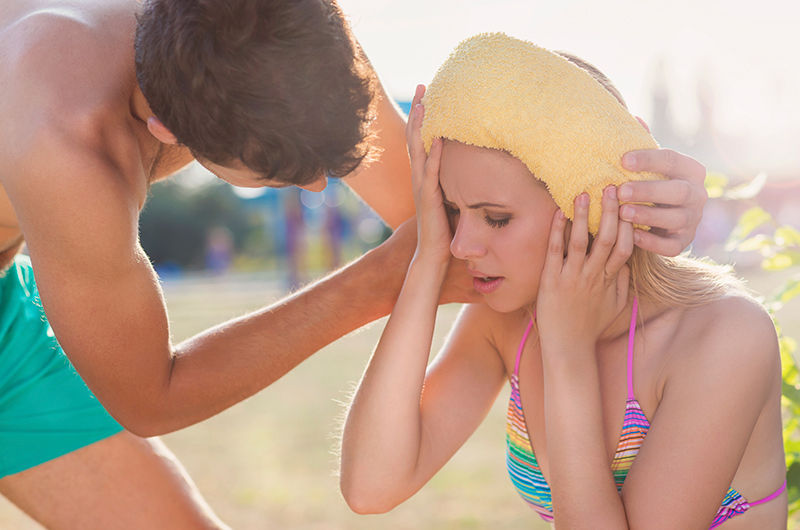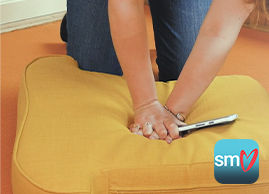
As summer swells into full swing, temperatures are heating up across the country. You may be less motivated to head outdoors for your workouts and opt to stay inside instead. Since the optimal temperature for working out is between 68-72 degrees Fahrenheit, a sunny day with temperatures in the 80s and higher may not be in your best interest. But still, you may feel pulled to the beach, mountains or park to enjoy your workout outdoors while you can. Beware of the sweat factor!
The heat index plays a big role in developing heat-related illnesses. The risk dramatically increases when the heat index climbs to 90 degrees or more. In addition, full sunshine can increase the reported temperature by 15 degrees; so even temperatures in the 80s can create problems.
Aside from a lack of sweating, if you develop any of the symptoms below, it’s time to come indoors, cool down and maybe even seek medical attention.
Symptoms of heat illness include:
- Throbbing headache
- Dizziness and lightheadedness
- Lack of sweating despite the heat
- Red, hot and dry skin
- Muscle weakness or cramps
- Nausea and vomiting
- Rapid heartbeat, which may be strong or weak
- Rapid, shallow breathing
Treatments include:
- Seek medical attention
- Get inside or into the shade
- Wet the body with cool water
- Apply cold packs to the armpits, groin and neck
- Take a cool shower or bath
- Drink water
Heat exhaustion happens when the body becomes overheated from physical activity and hot temperatures. These illnesses may occur more often in people with health conditions like heart, lung, and blood pressure issues, pregnancy, and in elderly populations.
Heat stroke is the more serious of the two heat-related conditions and can be fatal. Heat stroke develops rapidly and if not treated properly, can cause severe brain damage or even death.
If you suspect you may have heat stroke, call 911 or go to the hospital. It is imperative to lower the body’s internal core temperature. Get out of the heat, get into the shade, go indoors and slowly cool the body. Other ways to cool the body include wetting down the body with a sponge or hose and fanning air over the body. You may also apply ice packs to the armpits, groin, neck, and back or if possible, take a shower or bath with cool water.
The best way to avoid heat-related illnesses is to avoid exercising in the heat. Exercise early in the morning or late at night, use sunscreen with an SPF of 15+, stay hydrated, limit your intake of caffeine and alcohol, and eats lots of hydrating fruits and vegetables.
Stay cool and listen to your body.




 by
by 








 by
by